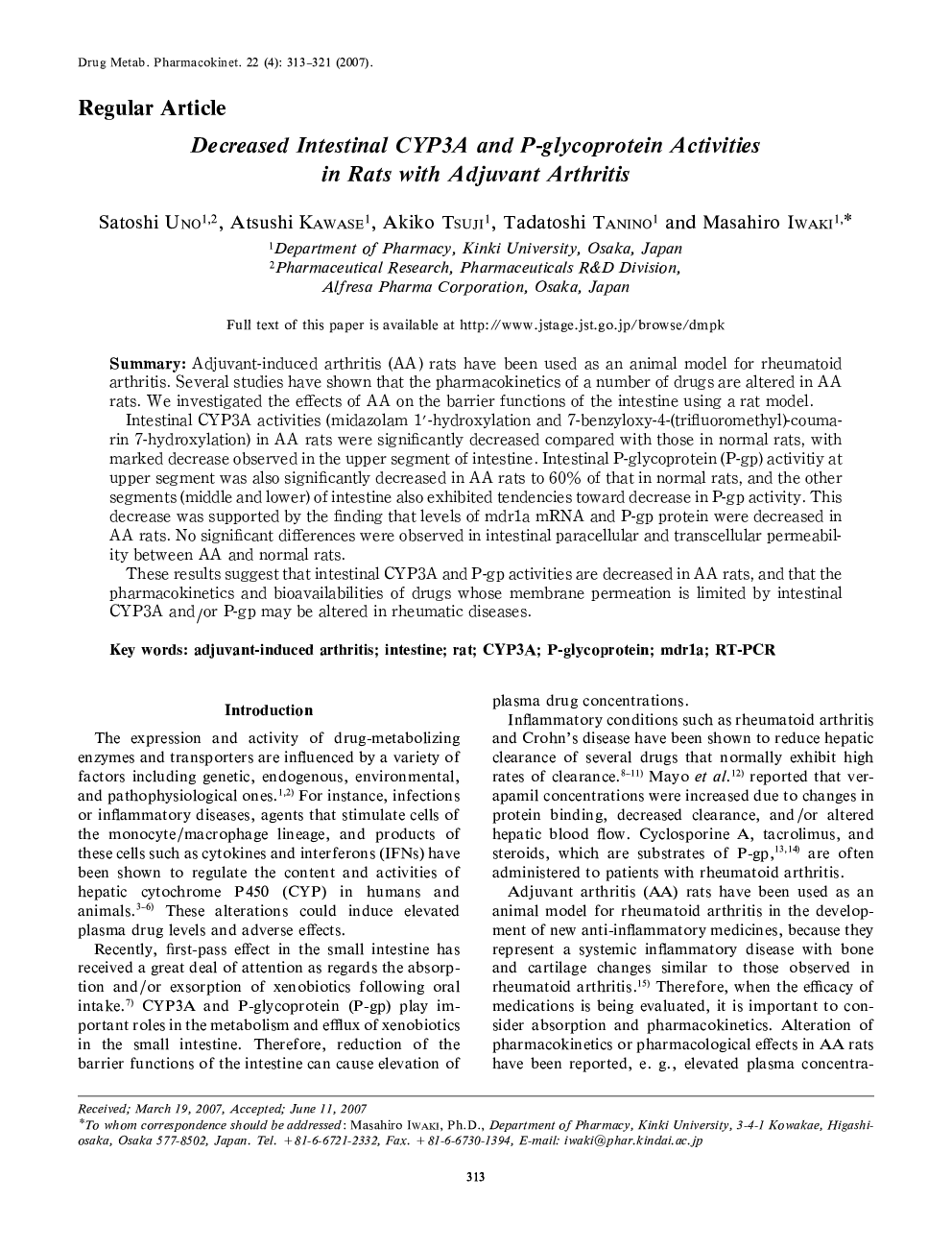| Article ID | Journal | Published Year | Pages | File Type |
|---|---|---|---|---|
| 2479503 | Drug Metabolism and Pharmacokinetics | 2007 | 9 Pages |
Summary:Adjuvant-induced arthritis (AA) rats have been used as an animal model for rheumatoid arthritis. Several studies have shown that the pharmacokinetics of a number of drugs are altered in AA rats. We investigated the effects of AA on the barrier functions of the intestine using a rat model.Intestinal CYP3A activities (midazolam l′-hydroxylation and 7-benzyloxy-4-(trifluoromethyl)-coumarin 7-hydroxylation) in AA rats were significantly decreased compared with those in normal rats, with marked decrease observed in the upper segment of intestine. Intestinal P-glycoprotein (P-gp) activitiy at upper segment was also significantly decreased in AA rats to 60% of that in normal rats, and the other segments (middle and lower) of intestine also exhibited tendencies toward decrease in P-gp activity. This decrease was supported by the finding that levels of mdrla mRNA and P-gp protein were decreased in AA rats. No significant differences were observed in intestinal paracellular and transcellular permeability between AA and normal rats.These results suggest that intestinal CYP3A and P-gp activities are decreased in AA rats, and that the pharmacokinetics and bioavailabilities of drugs whose membrane permeation is limited by intestinal CYP3A and/or P-gp may be altered in rheumatic diseases.
